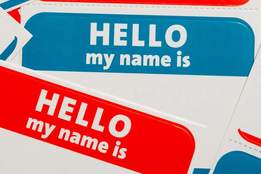plural robots
1
: a machine that resembles a living creature in being capable of moving independently (as by walking or rolling on wheels) and performing complex actions (such as grasping and moving objects)
When the next space launch heads for Mars, on board will be dozens of tiny mobile robots that will fan out across the Martian landscape, exploring every nook and cranny.— Michael Bowker
Michael Bowker
 Michael Bowker
Michael Bowker
often
: such a machine built to resemble a human being or animal in appearance and behavior
While science fiction robots have been capable of independent thought, emotions, even a little cooking and sewing, scientists are finding that endowing a mechanical being with even the most basic human functions is a monumental challenge. — Greg Freiherr
Greg Freiherr
 Greg Freiherr
Greg Freiherr As a sign of the times, paleontologists themselves have taken to … designing dinosaur robots and displays … — Malcolm W. Browne
Malcolm W. Browne
—often used before another noun  Malcolm W. Browne
Malcolm W. Browne a robot dog
a robot servant
compare android, bot entry 1
2
a
: a device that automatically performs complicated, often repetitive tasks (as in an industrial assembly line)
the use of robots in car manufacturing
… factories run by robots producing many replicas of one product.— Morris Philipson
Morris Philipson
—often used before another noun Morris Philipson
Morris PhilipsonFor fluid applications, especially in the automotive industry, the robot arm must have extremely flexible movement.— Harry H. Poole
Harry H. Poole
 Harry H. Poole
Harry H. Poole
b
: a mechanism guided by automatic controls
a robot airplane
3
: a person who resembles a machine in seeming to function automatically or in lacking normal feelings or emotions
… seems to believe that professors are robots, students are superficial, grade-hungry receptacles …— Micaela Rubalcava
Micaela Rubalcava
 Micaela Rubalcava
Micaela RubalcavaLove words? Need even more definitions?
Merriam-Webster unabridged









Share